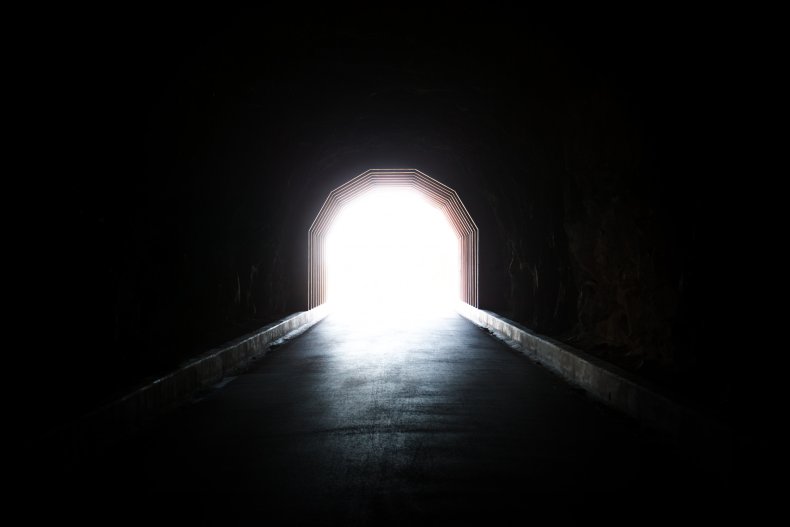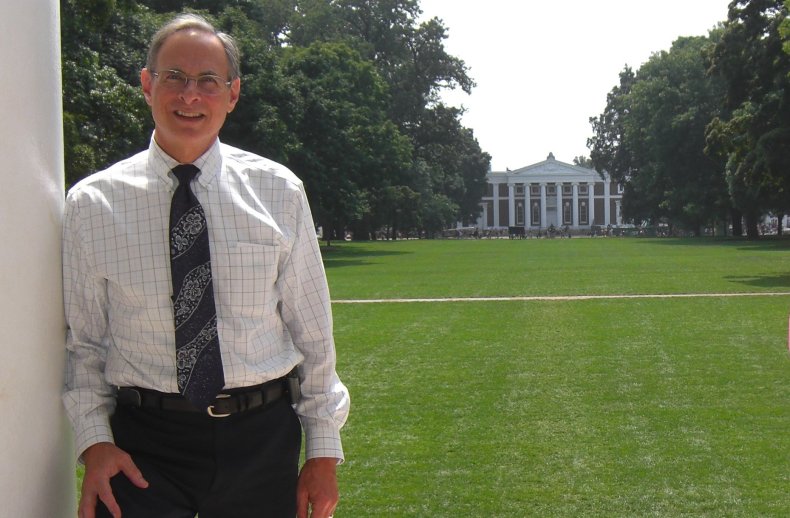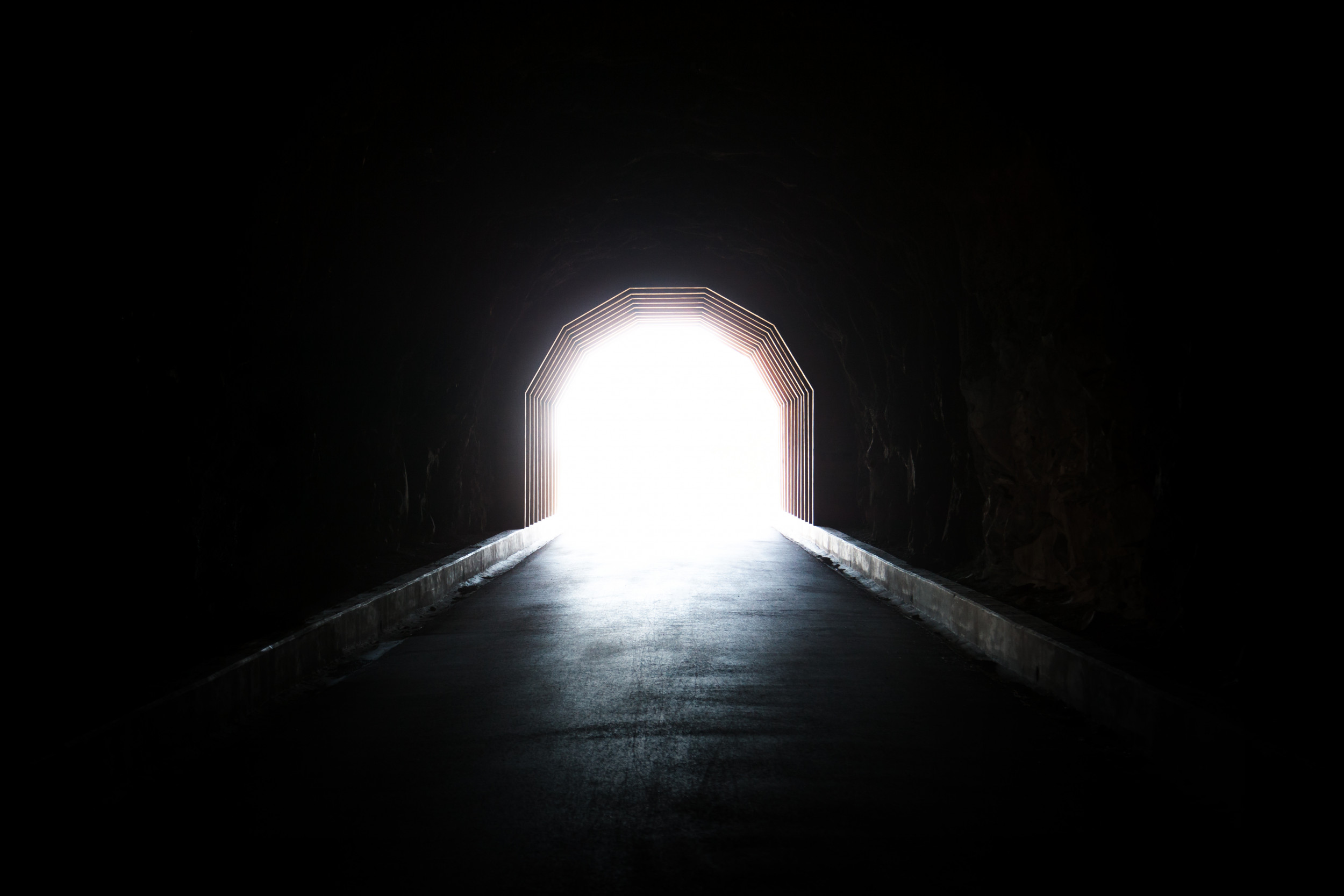I was raised in a scientific household, where things that couldn’t be seen, heard or felt were never discussed. Our world was the physical world, and the idea that there was anything else never came up. When you died, that was the end. That was the world I knew and felt comfortable with. I felt no need to go looking for anything else. I went through college and medical school with that mindset, and envisioned a fulfilling career as a medical scientist.
But shortly after finishing medical school in 1973, in my first months of my psychiatric internship, I was summoned to the emergency room at the University of Virginia (UVA) University Hospital, where I was working, to evaluate a patient who had overdosed. When I went to see her, she was unconscious and couldn’t be roused. I walked the 50 yards down the hall and asked the patient’s roommate about stressors in the patient’s life, recent changes in her mood, and what drugs she might have taken. When I finished with the roommate, I returned to the patient, who was still unconscious, determined that she would be admitted to the intensive care unit (ICU), and arranged to see her the following morning.
When I visited her in the ICU the next morning, she was very drowsy. I started to introduce myself, and she said, “I know who you are. I remember you from last night.” Surprised, I said, “I thought you were asleep when I saw you last night,” and she replied, “Not in my room; I saw you talking with my roommate.”
I hesitated, my mind reeling, trying to understand. Was she, with the aid of the nurses, playing a trick on me? Sensing my confusion, she made eye contact for the first time and told me about my conversation with her roommate, with details about the room we were in and what we were wearing. The hair rose on the back of my neck, and I felt goose bumps. I couldn’t make sense of it, but I also had no time to think about it. I was there to deal with her mental state, not mine.
I didn’t dare tell anyone about this. I was either a very gullible green intern or facing a physical impossibility, and I was too embarrassed to share either alternative with anyone else. As time went on, I told myself that I must have misheard or misinterpreted what she’d said. I believed there must be a rational explanation, though I couldn’t think of one. So I tried instead to put it out of my mind.
Three years later, in 1976, Dr. Raymond Moody joined me at the UVA University Hospital. He had just published a book called Life After Life, in which he introduced the term “near-death experience” or “NDE,” and described what he’d observed in 50 patients who’d been brought back from the brink of death. Talking with Raymond and reading his book gave me the first hint that my overdose patient’s report of remote viewing was not just an isolated incident, but part of a much larger phenomenon that was being reported by millions of people worldwide. As a scientist, it seemed intellectually dishonest to pretend these things didn’t happen, and I decided the only way to understand these experiences was to study them in depth. My quest to find a logical explanation for NDEs led me into a half century of research that took me into territory I never could have imagined.

Getty/iStock
Over the past five decades, I’ve interviewed thousands of people who were brought back from the threshold of death—or in some cases pronounced dead—and had striking tales to tell. Although it’s impossible to say for certain what happens when we die, I have heard hundreds of accounts of people claiming to have left their physical bodies and seeing things they shouldn’t have been able to see, while they were unconscious.
One example was a truck driver who said that, during quadruple bypass surgery, he rose above the operating room and saw his surgeon flapping his arms as if he was trying to fly. Convinced such an absurd vision had to be a hallucination, I asked the man’s permission to speak with his surgeon, and to my astonishment, the surgeon corroborated the story, explaining that he had placed his palms on his chest to avoid touching anything not in the sterile operating field and pointed out things to his assistants with his elbows rather than his fingers.
But as striking as these experiences are, for me as a psychiatrist, their most impressive feature is their effects on people’s lives. Typically, people I have spoken with return from NDEs with permanent changes to attitudes, beliefs, values, and behavior. They become less interested in worldly things like material possessions, competition, and fame, and more interested in nonphysical things: in caring, compassion, and altruism. I have not seen that they become more religious, but I’ve noticed that they often become more aware of the spiritual aspects of life. I’ve seen career military and police officers after NDEs become healthcare workers, teachers, or social workers; competitive businessmen become compassionate employers; and criminals and addicts turn their lives around.
The most common effect I have seen with people who have had NDEs is a conviction that death is not the end, but rather a transition, and that what comes after death, no matter how that is described, is not something to fear. And experiencers find that when they lose their fear of death, they also lose their fear of living to the fullest. As a result, their lives become more meaningful and fulfilling.

Courtesy of Dr. Bruce Greyson
This has affected me in subtle but definite ways. I no longer believe that the physical world is all there is, or even that it is the most important part of our world. I don’t know whether we survive bodily death, but I take the possibility seriously. I feel comfortable with the unknown and not having to have all the answers.
And I find it particularly helpful during a global pandemic to reconsider how we think about death, and to reevaluate what is meaningful and worth preserving in our lives.
Dr. Bruce Greyson is Professor Emeritus of Psychiatry and Neurobehavioral Sciences at the University of Virginia School of Medicine. A Distinguished Life Fellow of the American Psychiatric Association. His book, After is the culmination of almost half a century of his scientific investigation of NDEs.
All views expressed in this article are the author’s own.
